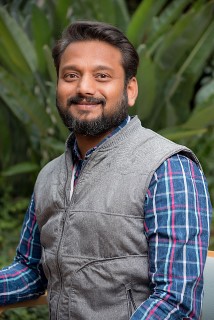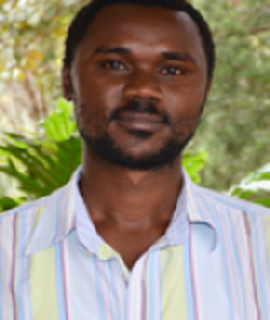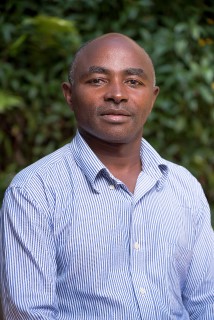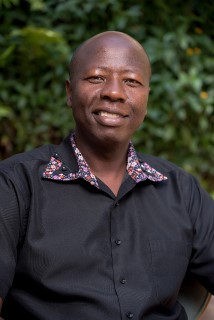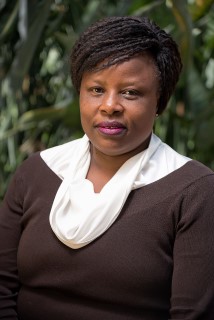With the endorsement of the African Union, the African Orphan Crops Consortium (AOCC) has the greater integration of orphan crops into African food systems at its heart. To support this, its goal is to sequence, assemble and annotate the genomes of 101 traditional African food crops, to facilitate their genetic improvement. Once genomes have been sequenced, AOCC explores genetic diversity in depth in a ‘germplasm’ panel of each crop. The chosen crops were identified in a participatory manner by scientists, development practitioners, consumers and producers as being important for supporting African consumers’ diets and farmers’ incomes. The genomic information produced by AOCC is put into the public domain for use by plant breeders and other crop scientists. The ultimate objective is to ensure that the improved varieties and cultivars of orphan crops developed with the support of genomic information are released to farmers for cultivation.
With teaching based at ICRAF, AOCC also conducts a training program for Africa’s plant breeders, to enable them to use advanced breeding methods. This initiative, dubbed the African Plant Breeding Academy, led by UC Davis (AfPBA), draws on an international team of instructors from both the public and private sectors, and will train a total of 150 African plant breeders by the end of 2020. These breeders work on a wide range of crops and production systems, and learn from each other as well as from the instructors.
This capacity building effort will empower national-level breeding programs. It is expected to strengthen the long-term capacity to breed adapted and productive crops at an institutional level, nationally, regionally and globally. The academy encourages its graduates to work on orphan crops.
Founding partners of AOCC include the African Union Development Agency (AUDA-NEPAD, formerly the New Partnership for African Development), World Agroforestry (ICRAF), Mars Inc., the University of California Davis (UCD) and the World Wildlife Fund (WWF). Other core partners include the Agriculture Research Council (ARC-LNR, South Africa), the Alliance for a Green Revolution in Africa (AGRA), Benson Hill, BGI, Bioscience eastern and central Africa-International Livestock Research Institute (BecA-ILRI), Corteva Agriscience, CyVerse, Dovetail, Food and Agriculture Organization of the United Nations (FAO), Bioinformatics Institute Ghent From Nucleotides to Networks (BIG N2N), Google Genomics, the Integrated Breeding Platform (IBP), Illumina Inc., the James Hutton Institute (JHI), KeyGene, LGC Genomics, Oxford Nanopore Technologies, Syngenta, Thermo Fisher Scientific, the United Nations Children's Fund (UNICEF), Wageningen University & Research (WUR) and the World Food Programme (WFP).
AOCC has received generous in-kind support from its current partners. It further welcomes the involvement of new partners interested in human nutrition, crop breeding and orphan crops.
Here is a list of crops to be sequenced
Objectives and methods of work
The AOCC partnership works to ensure the availability of nutritious orphan crops to consumers in Africa by promoting their production, through the adoption of modern breeding methods for crop improvement purposes. It does this through:
- The development of next-generation genomic resources for a collection of 101 African orphan crops. These comprise a mixture of annuals and perennials (the latter are mostly trees) which provide a range of different foods. The chosen crops are in many cases indigenous to Africa; however, some are exotic and were introduced in the past to the continent. The common feature is that they are all relatively under-researched.
- For each of these crops, it undertakes whole genome sequencing, followed by re-sequencing of germplasm panels of 100 accessions of each crop, and transcriptome sequencing. Through this work, it develops tools to assess genetic diversity in crops and to support breeding programs. All the information obtained is made publicly available.
- The African plant breeders are trained to use these resources at the African Plant Breeding Academy, led by UC Davis.
The AOCC partnership then feeds into wider efforts to mainstream orphan crops into food supply systems in Africa. Such work involves value chain development, advocacy and other measures necessary to boost production and consumption.
Our Four Key Outcomes
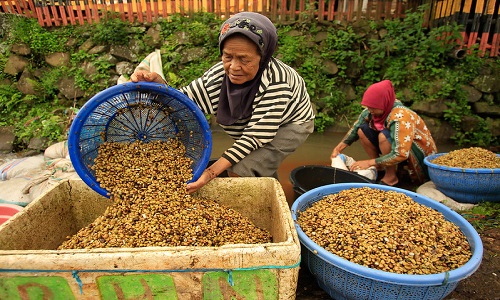
1.Quality planting material for farmers
Our primary objective is to ensure that farmers are able to access better quality planting material for orphan crops. We do this by developing genomic resources that can be used for crop improvement purposes, supported by a newly trained cadre of African plant breeders.
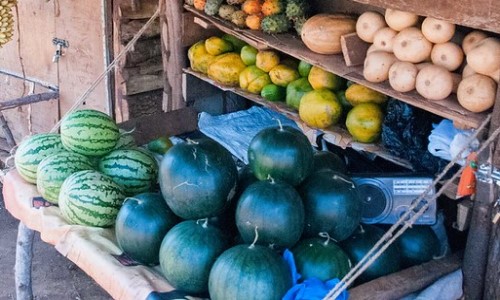
2.Good nutrition
Through wider production of nutritious orphan crops, the diets of consumers can be made healthier.
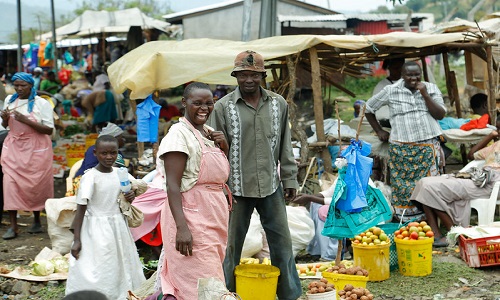
3.Better value and remuneration
Farmers can also sell crops in the market, thus improving their incomes.
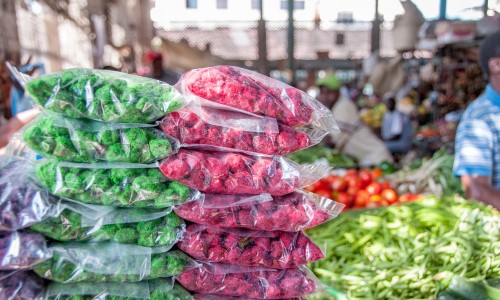
4.New value chains, markets and products
Creating new value chains for orphan crops supports farmers’ incomes and provides new products for the wider society.
Meet The Team

Ibrahim Assane Mayaki
Chief Executive Officer of the African Union Development Agency - NEPAD
A former Prime Minister of Niger, from 1997 to 2000, Dr. Mayaki has a Master' degree from the National School of Public Administration (Enap), Quebec, Canada and a PhD in Administrative Sciences from the University of Paris I, France. Read more
Howard Yana-Shapiro
Senior Fellow
Howard has been involved with sustainable agricultural and agroforestry systems, pattern recognition, plant breeding, molecular biology and genetics for over 40 years releasing hundreds of cultivars into the public domain. Read more
Tony Simons
Executive Director, CIFOR-ICRAF
Director General, ICRAF
Tony Simons has worked for 27 years on issues at the tropical agriculture/forestry interface in more than 40 developing countries. Read more
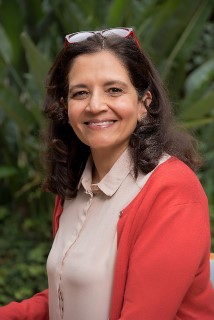
Ramni Jamnadass
Program Leader Domestication, Diversity, Delivery (World Agroforestry)
Ramni is a Kenyan driven to improve the livelihoods of smallholder farmers and other poor communities through applied agroforestry research. Read more
Allen Van Deynze
Scientific Director, AOCC; Director Seed Biotechnology Center, UC Davis, Plant Breeding
Expert in Plant Biochemistry and Molecular Biology, Biochemistry, and Genomics Environmental and Integrative Biology. Read more
Prasad Hendre
Genomics Laboratory Manager (World Agroforestry)
Prasad is a trained geneticist and plant breeder who is interested in applying various molecular genomics tools for enhancing breeding efficiency and developing improved varieties. Read more
Robert Kariba
Genomics Lab Technician (World Agroforestry)
Robert holds an MSc in genetics from Kenyatta University. Read more
Samuel Muthemba
Genomics Lab Technician (World Agroforestry)
Muthemba holds a Molecular Biology and Biochemistry degree from Jomo Kenyatta University of Agriculture and Technology. Read more
Jantor Ndalo
Molecular Laboratory Assistant
Jantor holds a bachelor’s degree in Biotechnology and is in advanced stages of her MSc Biotechnology at Kenyatta University, Kenya. She has hands-on experience on the techniques, tools and workings of molecular and genomics. Read more
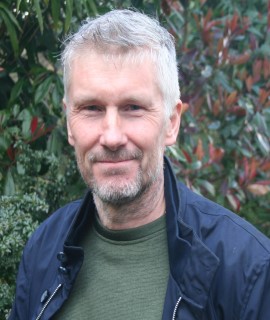
Ian Dawson
Senior Scientist (World Agroforestry)
Ian is an Associate Fellow with the Tree Productivity and Diversity research theme at World Agroforestry (ICRAF), where he researches tree crop domestication and genetic management. He is also a Reader at Scotland’s Rural College (SRUC) in Edinburgh, Scotland, where he researches promotion approaches for new and orphan crops, from production through to consumption. Through linkages with SRUC, he brings additional expertise on domestication approaches to the African Orphan Crops Consortium.
Zakayo Kinyanjui
Seed Lab Technician (World Agroforestry)
Zakayo holds a Horticulture degree from Jomo Kenyatta University of Agriculture and Technology. Read more
Simon Kangethe
Seed Lab Technician (World Agroforestry)
Mr Simon Kangethe joined the Genetic Resources Unit, ICRAF as a Database officer in August 2015. Read more
Agnes Were
Seed Lab Technician (World Agroforestry)
Agnes holds a Science Laboratory Technician certificate from Kenya Polytechnic University. Read more
Nelly Mutio
AOCC Administrator (World Agroforestry)
Nelly is a Senior Administrator. She holds a BBA in Human Resource Management and a Diploma in Information Technology. Read more




